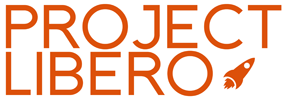Last week I went on the road to find out more about barriers to coaching. I offered a 30 minute coaching session for the cost of a cup of coffee (and being willing to tell me why they thought people might not use coaching). I advertised it via twitter and the blog. It seemed to generate a lot of interest. The raw stats are as follows
- 89 views on the invitation
- 12 expressions of interest
- 10 agreed to coaching
- 2 other coaches asked to use the idea
- 2 postponements
- 1 session carried out by phone
In the invitation to the coaching I discussed some of the barriers that I had seen, such as cost and lack of clarity as to what coaches provide. Certainly those issues came up again but also a couple of new angles.
Let’s look at the personal first.
- A few of the clients talked about how the processes / mechanics of a coaching session were a barrier for them. On a rational level they understood the benefits of coaching and saw it as positive but felt that they didn’t understand what might be expected of them. It’s something I’ve tried to address in my short film but it does make me think that as coaches we need to be clearer about what we do, how we do it and the impact we can have.
- Several clients mentioned a fear around how coaching might impact on their lives. Interestingly though, not just for their own sake but more for how that might change the world for people around them, partners, colleagues. They saw that as a key reason not to make any changes. Now as a coach you tend to get steeped in “change”, seeing it as a good thing. When you train you often coach fellow students who are all “on-board” and it’s easy to forget that something which you see as a routine issue can be enormous to a client. This is something that a coach can easily address in themselves, but I’m not sure we always do……
Now the professional views
- There remains a barrier in the area of return on investment. Businesses are unsure of what they are getting and what the benefits are to their organisation. Few companies would approve a coaching intervention solely for the interests of the coachee and their stake as client is just as important. After all, they are funding the engagement with (hopefully) a particular outcome and timeframe in mind. Here I feel it is incumbent on coaches to have a robust triangular discussion and fashion a clear direction and open channels of communication to avoid any misunderstandings, particularly in the area of confidentiality.
- My final barrier is one which goes into the area of coach behaviour and ethics. A scenario was outlined to me where a person is working in a business as a facilitator / trainer and then suggesting to course attendees that they might like some personal 1 to 1 coaching on an issue which has arisen during the training. Now whilst I understand that coaches need to eat, you’re being employed by the business not by the individual. If there are themes emerging from the class you have a responsibility to feed that back to the organisation. If you notice a personal shortfall then to my mind it needs to be a triangular discussion with the business. They can then decide whether it’s a need that they wish to resource or whether it isn’t a priority for them.
So that’s the immediate learnings and I’m sure that more will emerge over time and reflection. For me personally, the biggest learning (& it’s a re-learning of something I’d forgotten) was about the relative size and impact of change on an individual. As I said earlier, coaches are used to change, it’s their metier and that means they can become blase about how easy it can be, forgetting that their client has not had the benefit of all the coaches training. Remember folks, it’s always about the client.
If this post gets you thinking then please comment below or come and find me on twitter and say hello. Both Ian Perry and Wendy Aspland are doing something similar so there may be more to come.
P.S. Thanks to all my willing guinea pigs. I really appreciate your time and feedback. Apologies for arriving soaking wet, it wasn’t the best week to cycle round London but it was good training for my charity ride which several of you kindly donated to. I’m really grateful for that support.

Jon,
This is a great summary of your findings. I agree with all of it.
I’m surprised that you haven’t commented on personal fear: A person may recognise the need for coaching in some analytical / rational way and still decide against it for fear that they may not like the changes that might then happen.
I’m find that I’m catching up on a backlog of reading including your recent blogs and so missed your invitation. If you’re still offering to drink coffee then I’m up for buying you one.
Mark
Hi Mark, thanks for the comment. The idea for the experiment was to explore some less obvious barriers and whilst personal fear is an issue, it’s one we were aware of.
I’ve tried to acknowledge the personal fear in the second bullet point and also highlight the new element I’ve not really seen before – the issue of impact on others. Wrapping up with the insight that coaches don’t always appreciate the scale and size of change for their clients, or perhaps the clients fear about outward ripples of change.
I’m afraid the coaching offering is over but it would be great just to meet informally and discuss anyway. I’ll let you have some dates.
Regards
Jon